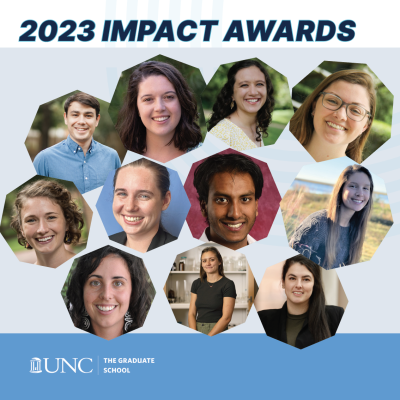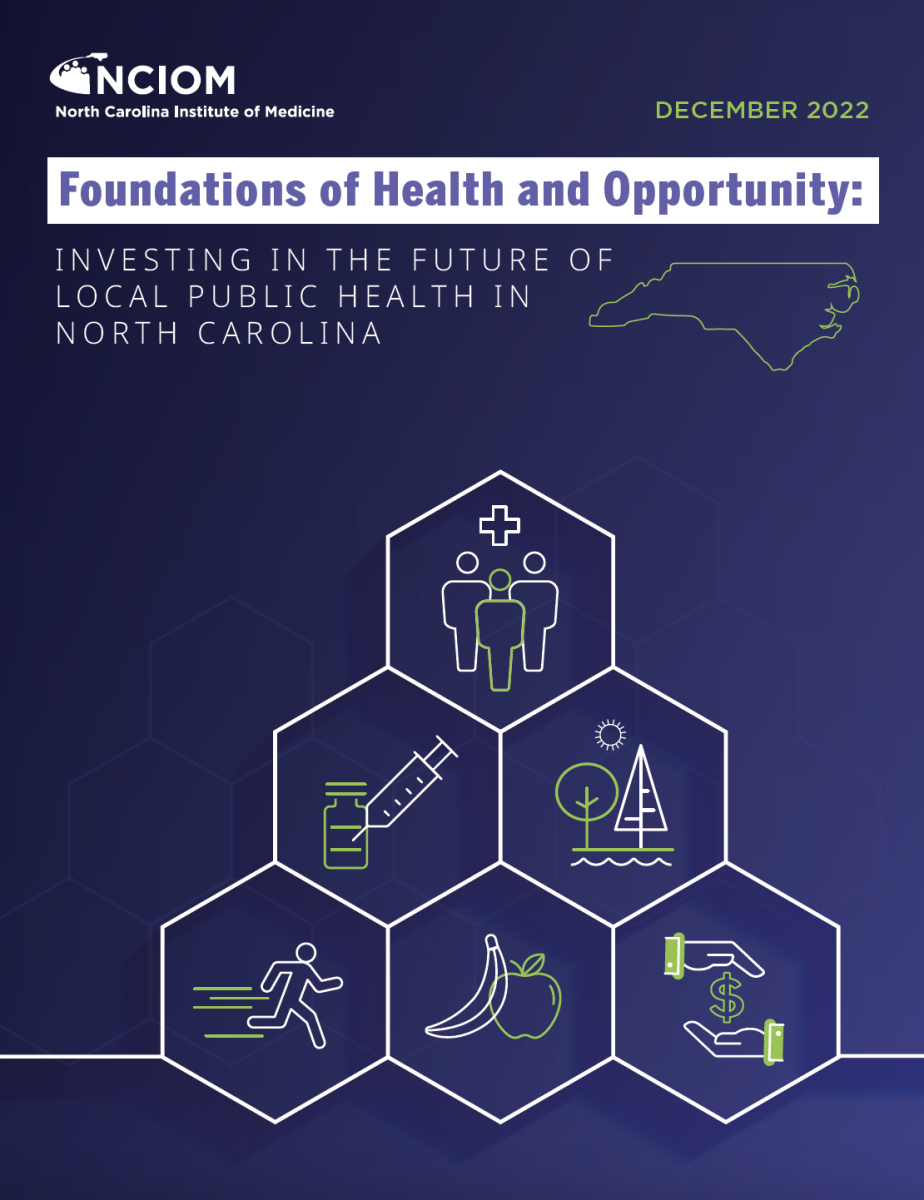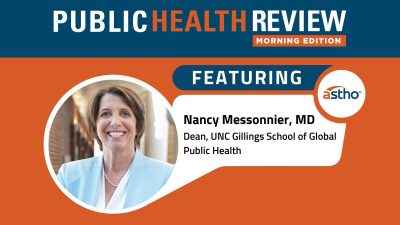Reflections from the Dean — January 2023
January 31, 2023
At the Gillings School, the first month of 2023 brought with it some exciting news!
 I was beyond inspired to learn that our students and recent alumni earned five of the 11 UNC-Chapel Hill Impact Awards for 2023. These awards are especially meaningful because they recognize graduate research that translates into practice, yielding direct improvements in the lives of North Carolinians.
I was beyond inspired to learn that our students and recent alumni earned five of the 11 UNC-Chapel Hill Impact Awards for 2023. These awards are especially meaningful because they recognize graduate research that translates into practice, yielding direct improvements in the lives of North Carolinians.
We are a state school. This kind of work is at the core of our mission. So, I’m cheering extra loudly for Emily Duffy (nutrition), Amy Kryston (global health), Haley Plaas (environmental sciences and engineering), Sophie Ravanbakht (health policy and management) and Adrien Wilkie (epidemiology) for their dedication to equitable food access, safe sanitation, mitigating the effects of climate change, understanding pediatric obesity and improving birth outcomes.
All of this is public health.
Speaking of which, the North Carolina Institute of Medicine (NCIOM) recently released a road map report called “Foundations of Health and Opportunity: Investing in the Future of Local Public Health in North Carolina (PDF).”
Many Gillings-affiliated folks were part of the task force that produced this report, including Professor of the Practice Leah McCall Devlin and alum and Adjunct Assistant Professor Lisa Macon Harrison — together, they filled two of the four co-chair roles.
 Associate Dean for Practice John Wiesman and Community Assessment and Strategy Director Amy Belflower Thomas also contributed as task force members, and Gillings alumni Stephanie Baker, Ronny Bell, Brian Castrucci and Doug Urland were all either members of the task force or the steering committee.
Associate Dean for Practice John Wiesman and Community Assessment and Strategy Director Amy Belflower Thomas also contributed as task force members, and Gillings alumni Stephanie Baker, Ronny Bell, Brian Castrucci and Doug Urland were all either members of the task force or the steering committee.
I want to acknowledge the service of all these experts. It takes hard work to create an actionable plan on this scale, and public health in our state will be stronger because of their efforts.
Of course, the Gillings School will be deeply involved moving forward: As the only school of public health in N.C., we are at the heart of an outlined strategy to convene a statewide network of public health programs. We also have committed to bolster our state’s public health workforce capacity by sharing data collection and leadership for equity training resources through our North Carolina Institute for Public Health.
I am gratified to see this forward-thinking approach to public health infrastructure, because it’s a mistake to think we can build systems in the middle of a crisis.
I recently joined the Association of State and Territorial Health Officials’ Public Health Review podcast to discuss the ongoing need for sustained investment in public health three years after the pandemic began.
We’ve seen this time and again: During a crisis, everyone throws up their hands and asks, “Why don’t we have better surveillance? Why aren’t there public health officers in every county hospital? Why don’t we have diagnostics and vaccines ready to go?”
 Everyone says we need to do better — but when the emergency ends, the money dries up. I support the theory behind NCIOM’s road map: The thing to do is invest early in the people and systems you will inevitably need down the road.
Everyone says we need to do better — but when the emergency ends, the money dries up. I support the theory behind NCIOM’s road map: The thing to do is invest early in the people and systems you will inevitably need down the road.
I also believe we need to invest more resources in improving public health communications. As a field, we haven’t done a good job of understanding how people receive information or who they really trust. So much unnecessary damage was done during the pandemic because of mistrust and misinformation — which brings me to the ongoing turmoil around social media.
Over the past few months, I have paid attention as some other schools and programs of public health, all of which I respect, have stepped away from Twitter, citing the rise of hate speech and purposeful disinformation campaigns. Others have distanced themselves from TikTok due to government bans.
The social media landscape continues to change and evolve, and the most popular platforms are all facing scrutiny. We are keeping a close eye on what is a very fluid situation. At this time, we believe our ability to share the latest research news and disseminate fact-based guidance about current events remains a valuable enough public service to stay the course.
It’s hard to believe we’re only one month into 2023 — here’s to all we’ve already weathered and accomplished together. With so much going on in the world, I am grateful to be part of such a strong community.
Dr. Nancy Messonnier
Dean and Bryson Distinguished Professor in Public Health
UNC Gillings School of Global Public Health
